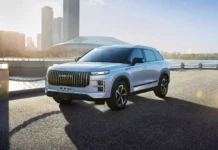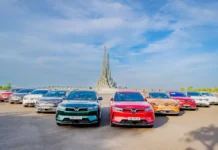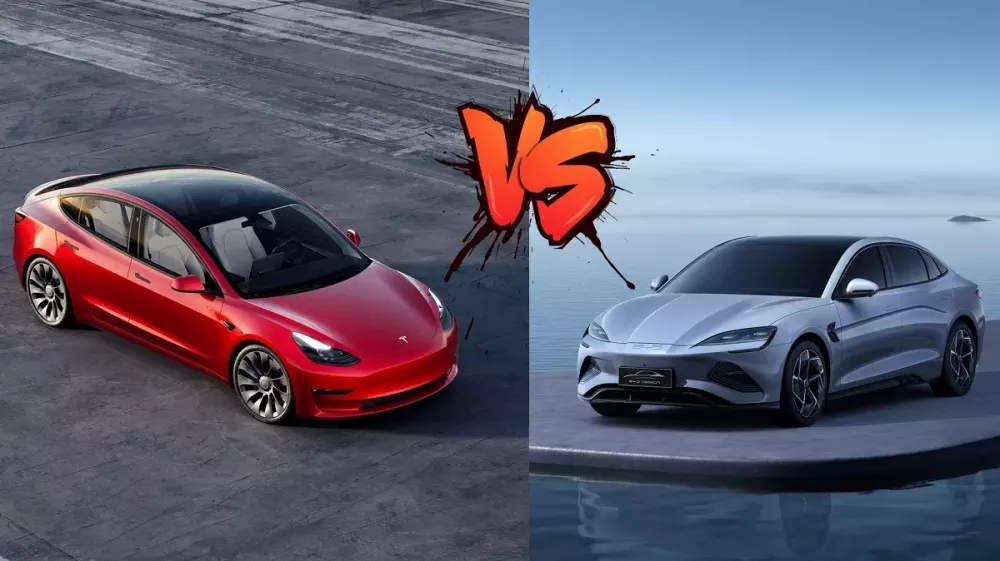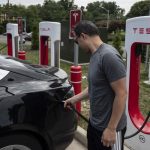Tesla has sold a record number of electric cars in the fourth quarter of this year, surpassing market estimates and achieving its target for 2023. However, Tesla has lost its position as the world’s leading electric car manufacturer to China’s BYD in the last three months of 2023.
Specifically, Tesla delivered 494,989 electric vehicles to customers worldwide in the period from October to December 2023, lower than BYD’s figure of 526,409 cars – the Chinese company backed by US billionaire Warren Buffett. BYD achieved this result mainly thanks to the domestic market in China, showing that car buyers are looking for cheaper models in a high-interest economy.
For the entire year of 2023, Tesla sold a total of 1,808,581 electric cars, including 1,739,707 Model 3 and Model Y. The remaining 68,874 cars are Tesla Model S, Model X, Cybertruck, and Semi.
Although it did not achieve CEO Elon Musk’s ambitious internal target of 2 million cars per year, Tesla’s sales still exceeded BYD’s for the entire year of 2023. Last year, the Chinese company delivered a total of 3,024,417 cars, including 1,574,822 electric cars and 1,438,084 plug-in hybrids.
Compared to 2022, Tesla’s sales grew by 38%, helping the American brand maintain its position as the world’s largest electric car manufacturer. Meanwhile, BYD’s corresponding growth rate was 62.3%.
According to Susannah Streeter, head of money and markets at Hargreaves Lansdown, BYD’s sales show that price cuts are paying off for the Chinese company. “The battle will damage the profits of both companies, but BYD clearly believes it is the price to pay to increase market share and recognition,” Streeter said.
Tesla has also increased its discount rate and offered incentives such as 6 months of free fast charging if customers receive their cars before the end of December 2023 to boost sales before some versions of the Model 3 lose tax credits in 2024. These incentives helped Tesla grow by 11% in the last quarter of 2023 and achieve higher sales than the industry’s estimated figure of 473,253 cars.
Tesla set a record sales of 494,989 cars in the fourth quarter after pausing production in the third quarter to upgrade its assembly line, bringing the total production for 2023 to 1.85 million cars. Gary Bradshaw, portfolio manager at Hodges Capital, said Tesla’s sales were “much better than those of domestic US car companies.”
Domestic competitor Rivian also reported sales for 2023 and did not achieve market estimates in the context of a sharp decline in electric vehicle demand. The market downturn has made US automakers, including Ford and General Motors (GM), more cautious about their electric vehicle production plans.
Some analysts say Tesla may have to continue its latest round of price cuts to sustain consumer demand after losing tax incentives under the Inflation Reduction Act (IRA) this year. Seth Goldstein, stock strategist at Morningstar, said: “Tesla may have to further reduce prices, especially for Model 3 versions that have lost tax credits.”
It is worth noting that the rear-wheel drive (RWD) versions and long-range variants of the Tesla Model 3 no longer qualify for a $7,500 federal tax credit this year due to updated supply chain requirements for battery materials. The Model 3 and Model Y duo accounted for 461,538 cars in Tesla’s total sales in the fourth quarter of 2023, while the remaining 23,000 came from other models.
Tesla is currently facing scrutiny from regulators over its self-driving technology. The company had to recall over 2 million cars last month to install new safeguards in its Autopilot advanced driver assistance system after a federal regulatory agency raised safety concerns.
According to Consumer Reports, a non-profit company with a large influence in the US that conducts in-depth evaluations of cars, kitchen appliances, and other goods, their preliminary evaluations showed that Tesla’s software update to fix the issue was not enough to prevent misuse and driver inattention.
































![[CAR REVIEW] Rolls-Royce Spectre: A Symphony of Luxury](https://vnauto.net/wp-content/uploads/2023/10/xehay-rrspectre-30082023-1-150x150.jpg)














